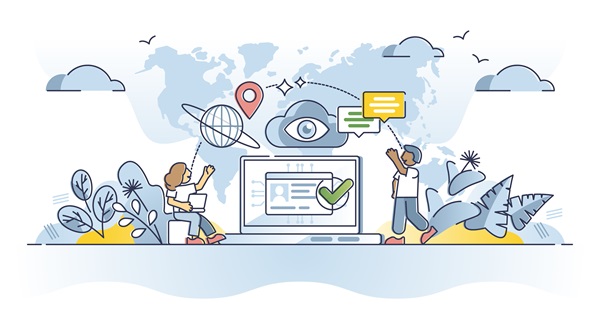Raising the responsible digital citizens of tomorrow

Digital citizenship is the responsible and respectful use of technology in a way that protects and promotes democracy. It involves soft skills in communication, collaboration, empathy and positive action, but it also involves privacy protection and information security.
Digital citizenship education (DCE) concerns active participation in digital society and helps learners to exercise and defend their democratic rights and responsibilities online. Its three areas – being online, well-being online, and rights online – are covered in the DCE Handbook. It provides ideas for teachers in terms of learning goals and activities that will enable children to experience digital citizenship.
Source: Council of Europe
Participation and active citizenship
Pupils must be aware of how they interact within digital environments so they can make responsible decisions and participate actively and positively as individuals. The Eurochild network is committed to actively involving children in influencing policy, building civil society capacity and facilitating mutual learning and exchange, and produces policy briefings, working papers and reports to that effect.
Rights and responsibilities
Digital citizens enjoy rights to privacy, security, inclusion, freedom of expression and more. However, with these rights come responsibilities. Internet users of all ages must understand their rights and what to do if their rights are violated. This is particularly important for children, who often lack context for information they encounter online.
The SELMA toolkit offers concrete advice and materials for educators to help address online hate speech.
e-Presence and communication
e-Presence is about digital identity online and digital communication skills to help build and maintain positive, coherent and consistent online identities and interactions.
This collection offers curated positive online content for teachers.
Further reading
Additional information
-
Education type:School Education
-
Target audience:TeacherStudent TeacherHead Teacher / PrincipalTeacher EducatorGovernment / policy makerResearcherNot-for-profit / NGO staff
-
Target audience ISCED:Primary education (ISCED 1)Lower secondary education (ISCED 2)Upper secondary education (ISCED 3)

